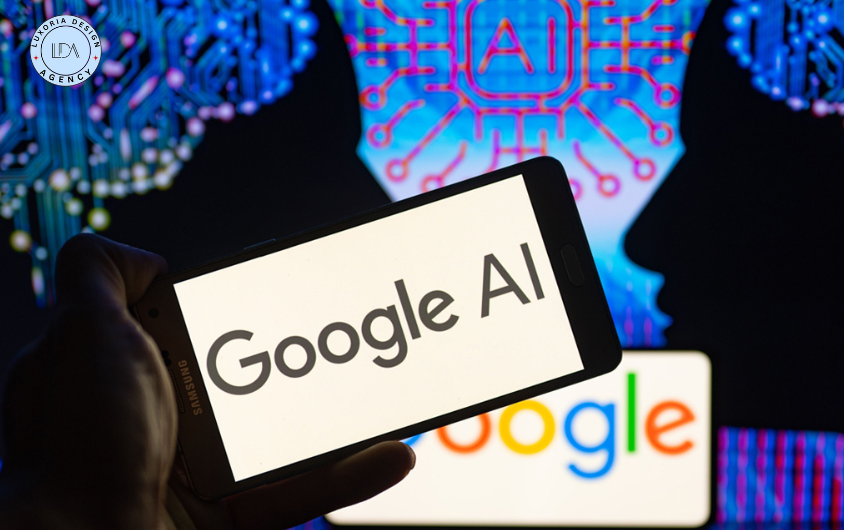Google Rolls Out AI-Organized Search Results Pages: Revolutionizing the Search Experience
In a time when artificial intelligence (AI) is reshaping various sectors, Google has made a notable advancement by introducing AI-organized search results pages. This development signifies a transition from conventional keyword-centric searches to a more sophisticated and personalized search experience. By harnessing the power of AI, Google seeks to provide results that are more relevant, contextually aware, and tailored to individual users, thereby reinforcing its position as the leading search engine globally. This update offers a multitude of advantages for users, businesses, and marketers, while also indicating the future trajectory of search technology.
This article will explore the functionality of Google’s AI-organized search results pages, their impact on users and businesses, and the implications of this evolution for the future of digital marketing.
The Evolution of Search: Transitioning from Keywords to Artificial Intelligence.
Google’s search algorithm has undergone significant changes since its launch, with updates such as Hummingbird, Rank Brain, and BERT introducing more intelligent methods for interpreting user inquiries. These enhancements have progressively shifted the emphasis from mere keyword matching to grasping the intent behind searches. At the core of this transformation is AI, which enables Google to deliver more accurate responses by comprehending the context, subtleties, and intricacies of natural language.
With the introduction of AI-organized search results pages, Google is advancing this transformation even further. The AI system operating in the background now dynamically reorganizes search results, providing not just a compilation of links but a more comprehensive and intuitive array of responses customized to meet the user’s requirements.
AI-Organized Search Results: An Overview
AI-organized search results are designed to enhance the search experience by making it more personalized and structured. The following outlines the functioning of this system:
Contextual Analysis:
Rather than solely depending on keywords, AI evaluates the context surrounding a search query. This capability enables platforms like Google to comprehend ambiguous inquiries or intricate questions in a manner akin to human understanding. For instance, a search for “best vacation spots in winter” will take into account not only “vacation spots” but also seasonal factors, weather preferences, and individual user behavior.
Tailored Personalization:
AI leverages user behavior data, including search history, geographical location, and personal preferences, to customize search results. Consequently, two individuals searching for “best restaurants near me” may receive entirely different results based on their previous choices, location specifics, and past interactions with reviews.
Dynamic Information Structuring:
Instead of displaying results in a straightforward list, AI categorizes them into thematic clusters, facilitating easier navigation for users seeking specific information. For example, a search for “best smartphones 2024” might yield clusters such as “budget smartphones,” “premium models,” “top camera features,” and “user feedback,” thereby streamlining the decision-making process.
Integration of Multimodal Content:
AI-enhanced results also incorporate various forms of multimedia, including images, videos, and interactive elements (such as product comparisons or local maps). This allows users to engage with content in a more dynamic way, moving beyond traditional text-based links.
Real-Time and Localized Updates:
AI enables real-time modifications to search results, particularly for local services and events.When a user inputs the query “events near me this weekend,” artificial intelligence can effectively prioritize and arrange the results to highlight relevant and location-specific activities, thereby ensuring that the most pertinent options are presented relevant and current information is highlighted.
The Advantages of AI-Enhanced Search Results for Users
AI-enhanced search results pages offer numerous advantages for users, significantly improving the efficiency and user-friendliness of the search process.
1. Quicker Access to Relevant Information
By systematically categorizing and organizing search results, AI minimizes the time users spend navigating through irrelevant links. Rather than scrolling through numerous pages of results, users can swiftly access the section that captures their interest, whether it pertains to product reviews, local listings, or related articles.
2. Enhanced User Experience through Personalization
Personalization stands out as a significant advantage of AI in search functionalities. Whether users are engaged in online shopping, looking for dining options, or conducting research, AI customizes results to align with their individual preferences. As AI continues to learn about the user’s behaviors and inclinations, the results become increasingly refined, providing a genuinely tailored search experience.
3. Integration of Multimedia Content
AI’s capability to incorporate various content types—such as videos, images, and interactive features—enhances the overall search experience. This multimedia integration proves particularly beneficial in domains like travel, shopping, and education, where visual and interactive components can offer a more comprehensive understanding of the topic at hand.
4. Advanced Natural Language Processing for Enhanced Query Understanding
The sophisticated natural language processing (NLP) abilities of AI allow it to comprehend lengthy, conversational queries. Users can express their inquiries in a more natural and less structured manner while still receiving highly relevant results. For example, a user might search for “the best movies to enjoy on a rainy afternoon” and receive personalized recommendations based on mood, genre, and individual preferences, rather than merely a generic list of popular films.
The Influence on Enterprises and Marketing Professionals
The transition to AI-curated search results carries substantial consequences for enterprises and digital marketing professionals, particularly concerning SEO, content development, and paid advertising strategies.
1. Evolution of SEO Approaches
AI-curated search results pose challenges to conventional SEO methodologies, which have traditionally emphasized keywords and backlinks. Consequently, businesses must now prioritize the creation of content that aligns with user intent and delivers thorough, value-oriented responses to potential inquiries. The thematic clustering of search results allows businesses to appear in more contextually relevant searches, even if they do not rank at the top for specific keywords.
Marketers must also adapt their content to be optimized for natural language and conversational queries. Content that effectively addresses questions or offers in-depth insights is likely to achieve superior performance in this AI-centric environment.
2. Growing Significance of Local SEO
As AI highlights real-time, location-based results, local enterprises can gain from enhanced local SEO practices. It is essential to maintain accurate and current business listings. For instance, restaurants, retail stores, and service providers can utilize AI’s organization of local search results to enhance visibility among nearby users, especially for urgent searches such as “lunch options nearby” or “available plumbers now.”
3. Improved Advertising Prospects
The advancements in AI by Google in search functionalities also create new avenues for advertisers. AI-curated results facilitate more targeted advertisements based on user behavior, intent, and preferences. This development may result in improved ad placements within search results, thereby increasing their relevance to users. Furthermore, AI-generated insights could assist businesses in refining their advertising campaigns by providing data on which clusters or categories yield the best performance for their ads.
4. Content Diversification
As artificial intelligence incorporates various content types into search results—such as videos, images, and rich snippets—businesses must adapt their content strategies accordingly. Merely producing blog posts or basic web pages will no longer suffice; the significance of video content, infographics, and interactive media will rise, as these formats are essential for engaging users across diverse search result categories.
The Future of Search: What Lies Ahead?
The introduction of AI-curated search results offers a preview of the future of search technology. As AI continues to advance, we can anticipate even greater levels of personalization and contextual awareness within search engines. Below are some trends to monitor:
Voice Search Ascendancy:
With advancements in natural language processing, AI will enhance voice search outcomes, delivering users more conversational and intuitive responses to their inquiries.
Augmented Reality (AR) Integration:
AR may eventually be incorporated into search results, providing users with immersive experiences for queries related to shopping, real estate, or travel.
Enhanced Understanding of User Intent: AI will persist in honing its comprehension of user intent, resulting in searches that are increasingly accurate, predictive, and personalized.
Conclusion
Google’s AI-curated search results represent a significant advancement toward a more intelligent, intuitive, and personalized search experience. By harnessing AI’s capacity to comprehend context, organize information, and customize results for individual users, Google is revolutionizing our interaction with search engines. For users, this translates to quicker, more relevant answers. For businesses and marketers, it introduces new challenges and opportunities to remain competitive in an AI-driven digital environment. As AI technology progresses, the future of search is poised to become even more sophisticated and user-focused.


